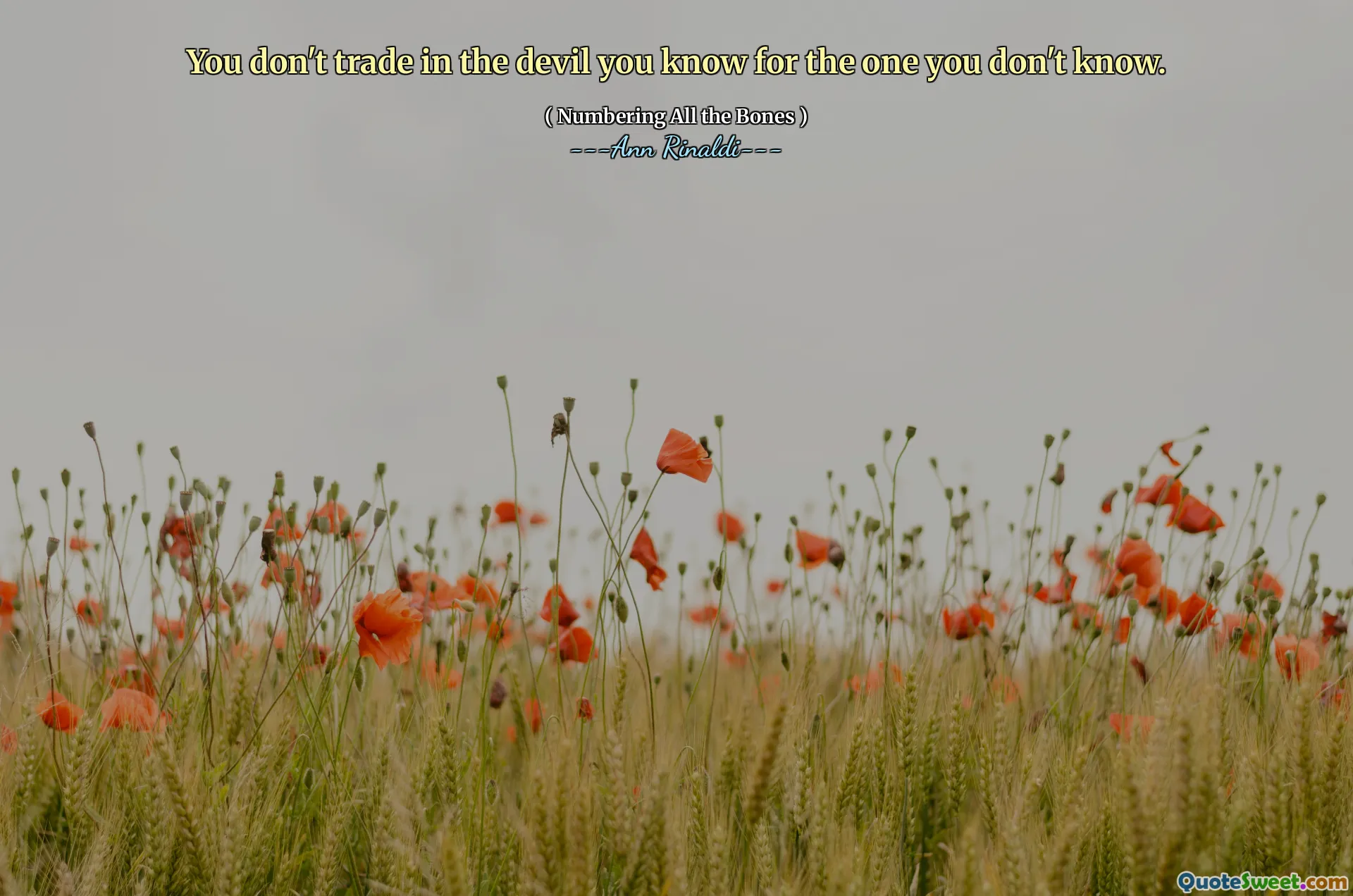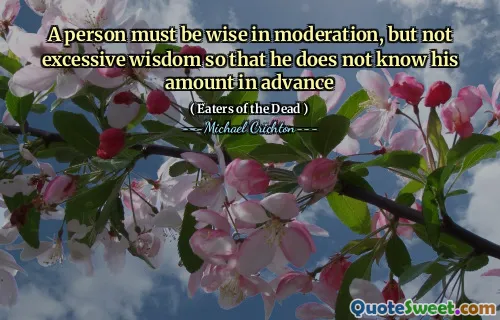
You don't trade in the devil you know for the one you don't know.
This quote reflects a fundamental aspect of human nature — our reluctance to abandon familiarity, even when it entails ongoing difficulties or imperfections. The "devil you know" symbolizes the challenges, risks, or negative situations that are at least understood or predictable, whereas the "devil you don't know" personifies the uncertainty and potential dangers of change or unknown circumstances.
In life, people often prefer stability, even if it is flawed, because it provides a sense of control and predictability. The fear of the unknown can be paralyzing, and thus individuals may choose to bear known difficulties rather than risk encountering potentially worse outcomes. This sentiment reminds me of the broader theme explored in ---Ann Rinaldi---'s book, Numbering All the Bones, which delves into challenging human experiences and choices made in difficult times.
From a psychological perspective, this quote also highlights how risk assessment can be biased by familiarity. We tend to evaluate known threats as less severe and more manageable than unknown ones, which can sometimes be beneficial by preventing rash decisions; however, it might also hinder growth and progress.
Ultimately, this quote opens a discussion about when it is wise to cling to the familiar and when it is necessary to courageously embrace change, trusting that the unknown, while intimidating, may lead to better outcomes. It reminds us that understanding our own fears and biases regarding uncertainty is crucial in making balanced decisions.






